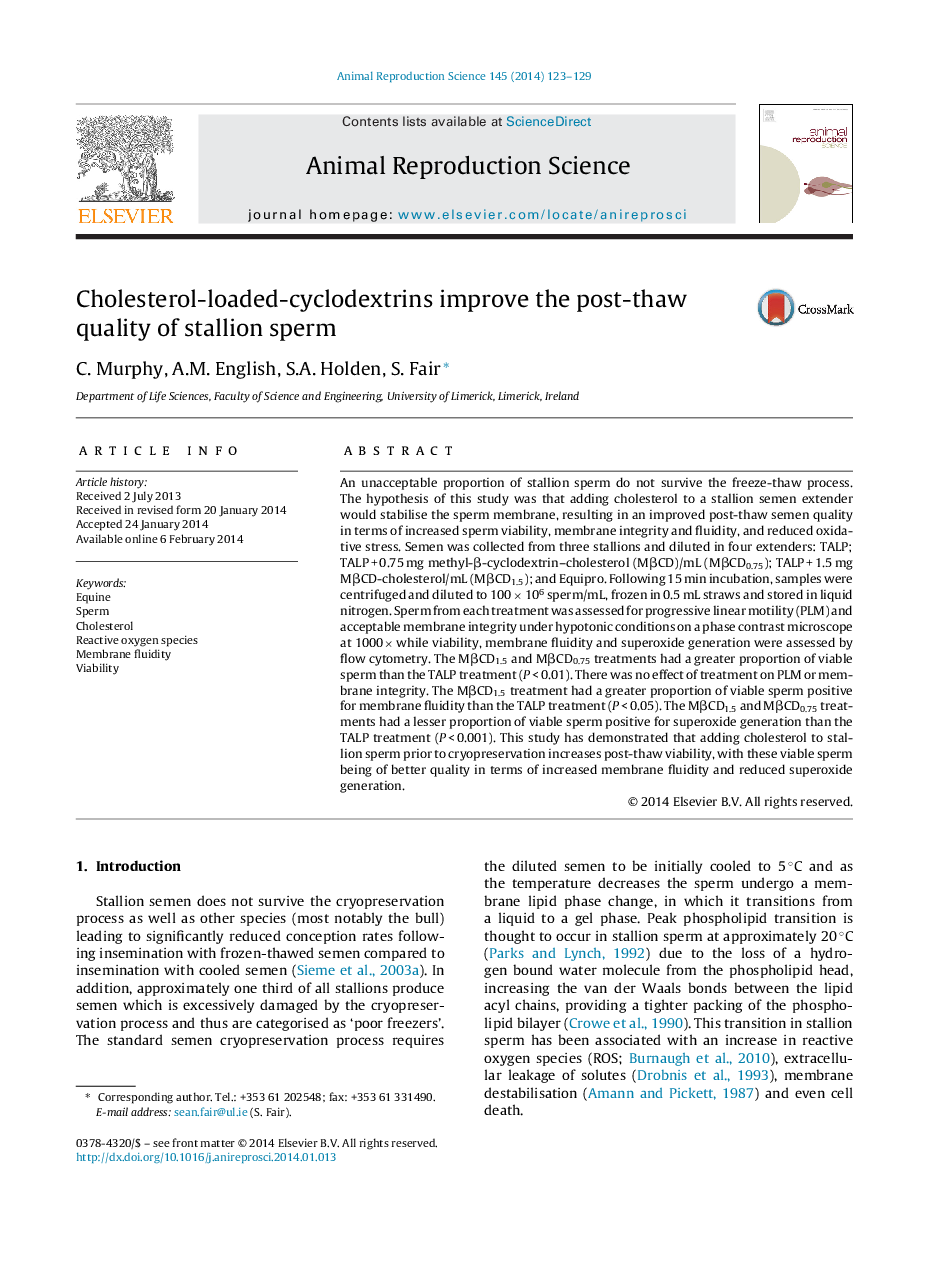| Article ID | Journal | Published Year | Pages | File Type |
|---|---|---|---|---|
| 2072969 | Animal Reproduction Science | 2014 | 7 Pages |
An unacceptable proportion of stallion sperm do not survive the freeze-thaw process. The hypothesis of this study was that adding cholesterol to a stallion semen extender would stabilise the sperm membrane, resulting in an improved post-thaw semen quality in terms of increased sperm viability, membrane integrity and fluidity, and reduced oxidative stress. Semen was collected from three stallions and diluted in four extenders: TALP; TALP + 0.75 mg methyl-β-cyclodextrin–cholesterol (MβCD)/mL (MβCD0.75); TALP + 1.5 mg MβCD-cholesterol/mL (MβCD1.5); and Equipro. Following 15 min incubation, samples were centrifuged and diluted to 100 × 106 sperm/mL, frozen in 0.5 mL straws and stored in liquid nitrogen. Sperm from each treatment was assessed for progressive linear motility (PLM) and acceptable membrane integrity under hypotonic conditions on a phase contrast microscope at 1000× while viability, membrane fluidity and superoxide generation were assessed by flow cytometry. The MβCD1.5 and MβCD0.75 treatments had a greater proportion of viable sperm than the TALP treatment (P < 0.01). There was no effect of treatment on PLM or membrane integrity. The MβCD1.5 treatment had a greater proportion of viable sperm positive for membrane fluidity than the TALP treatment (P < 0.05). The MβCD1.5 and MβCD0.75 treatments had a lesser proportion of viable sperm positive for superoxide generation than the TALP treatment (P < 0.001). This study has demonstrated that adding cholesterol to stallion sperm prior to cryopreservation increases post-thaw viability, with these viable sperm being of better quality in terms of increased membrane fluidity and reduced superoxide generation.
